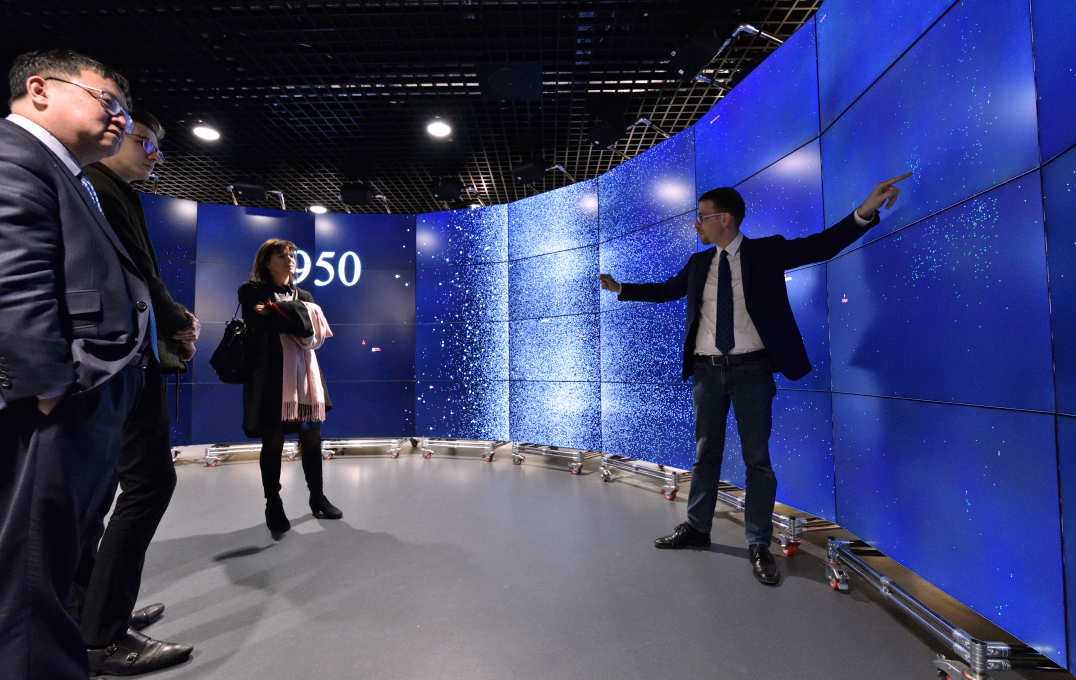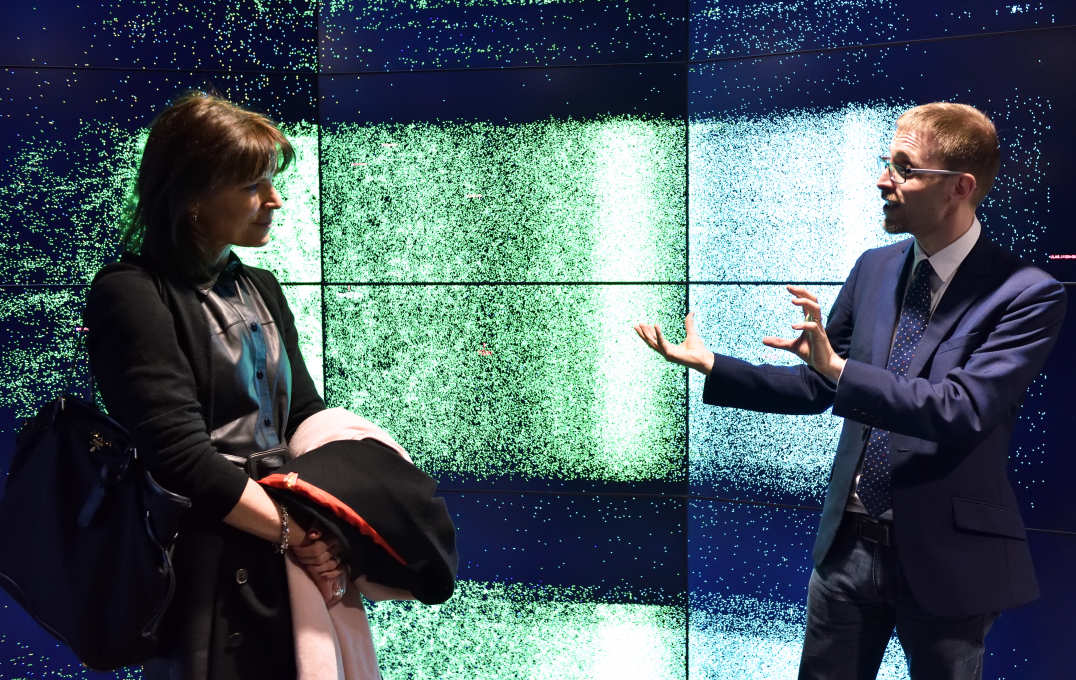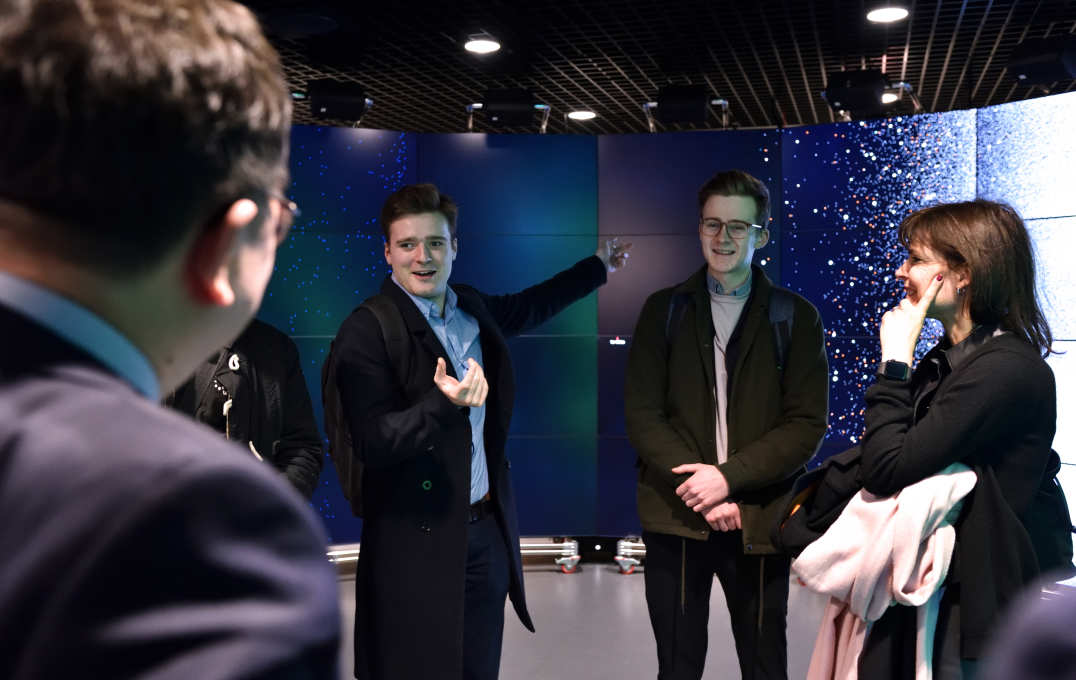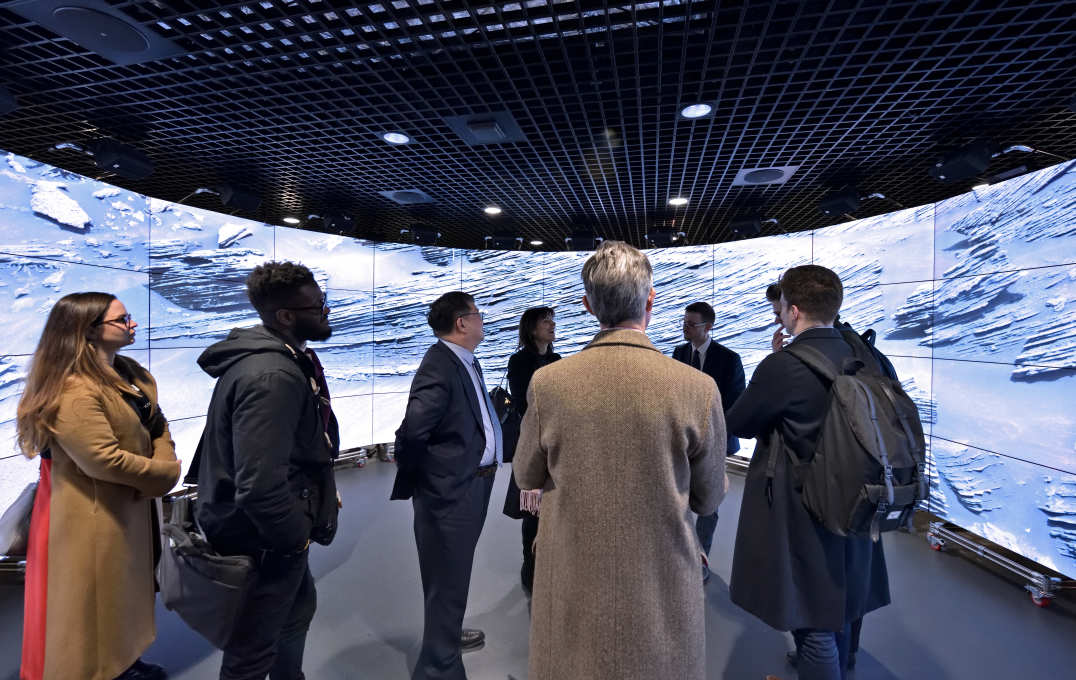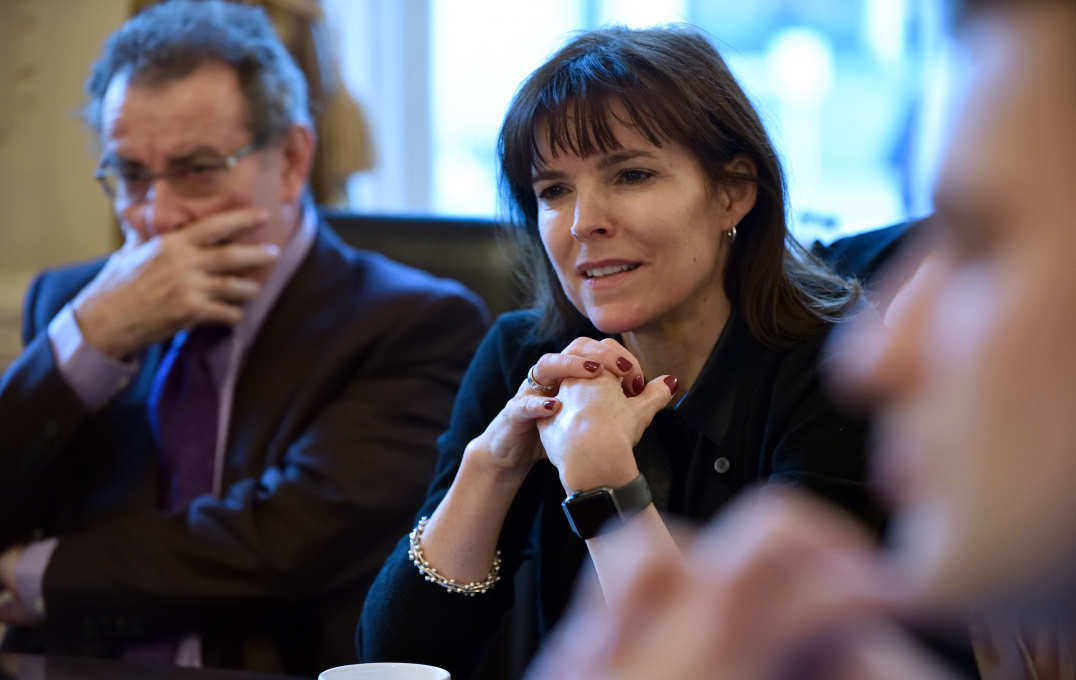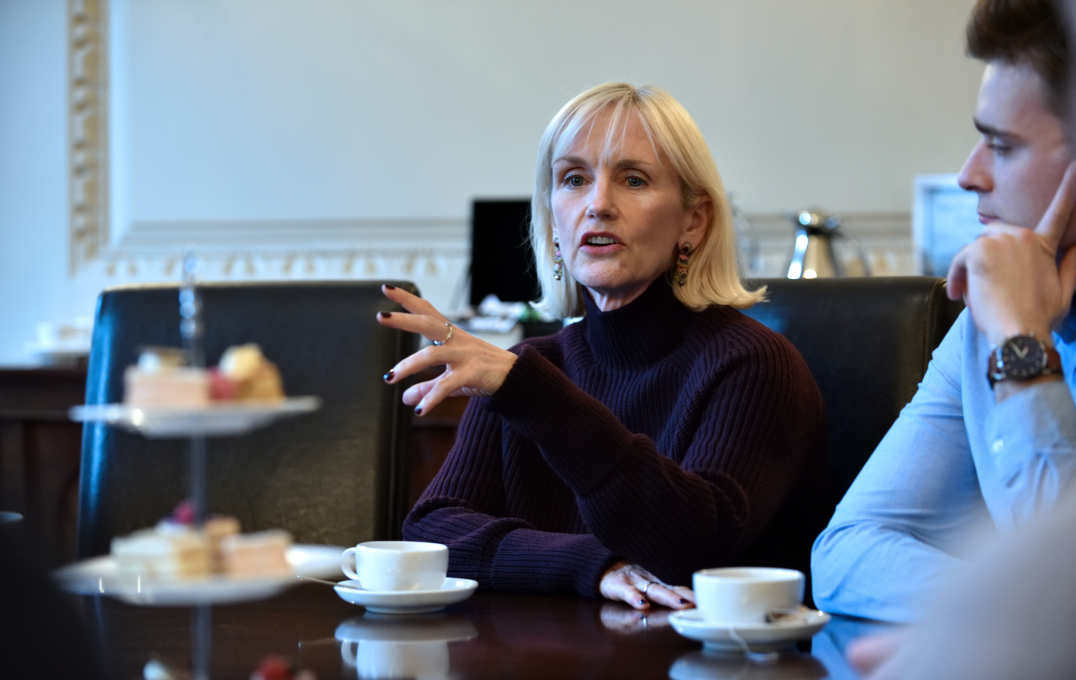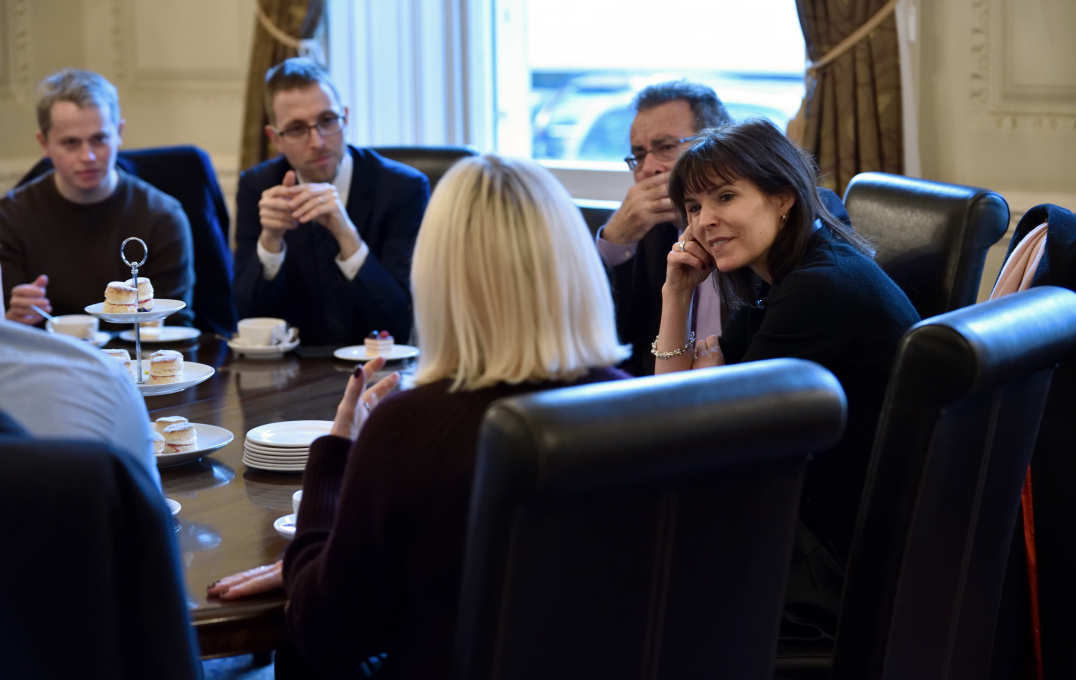Imperial science communications students meet top Times journalist
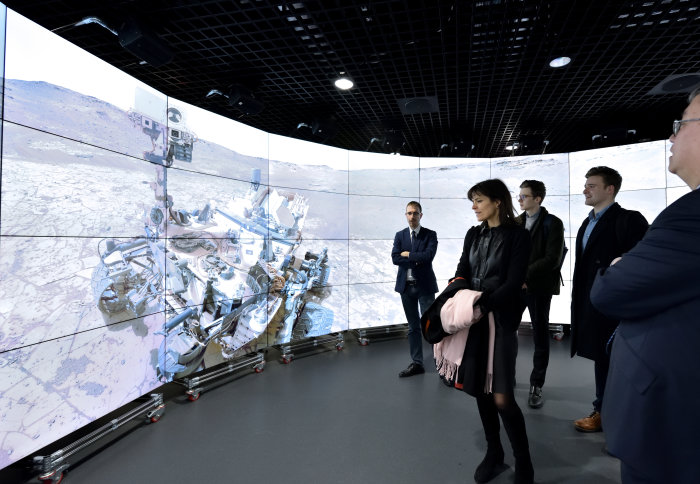
Emma Tucker, Deputy Editor of the Times, met with academics and science communication students during a visit to the College.
She made the visit to Imperial College London’s South Kensington campus where she got a first-hand insight into some of the College’s research and met with students on Imperial’s MSc Science Communication course.
The visit marks the strengthening of Imperial’s partnership and collaboration with The Times, a year-long programme of activity led by students with the aim of stimulating debate, provoking curiosity and exploring the future of science, technology and culture.
Knowledge is nothing unless you can express it convincingly Professor Roberto Trotta Reader in Astrophysics and Director of the Centre for Languages, Culture and Communication
Emma spent time in the Data Science Institute (DSI), where Professor Roberto Trotta, Reader in Astrophysics and Director of the Centre for Languages, Culture and Communication, showcased the ‘Map of the Universe’ graphic. This data visualisation demonstrates the sum of human knowledge about the universe and how this has evolved over time.
Professor Trotta and Professor Yi-Ke Guo, Director of the Data Science Institute and Professor of Computing Science, also explained the importance of the DSI as both a research and education tool, that allows visitors to be immersed in and interact with the data. “Knowledge is nothing unless you can express it convincingly,” Professor Trotta explained.
Aspiring science communicators
Emma then met aspiring science communicators who are studying a Master’s in Science Communication at the College’s Science Communication Unit. During a roundtable discussion, joined by Professor of Science and Society, Lord Robert Winston, Emma had the opportunity to ask the group what they think of current science reporting, and how it could be done better. The group also discussed how the public interact with science and what makes a good science journalist.
During the discussion, Emma explored what the students are hoping to get out of the course and what their aims for the future are.
Andy Djaba, current Editor of Imperial’s student newspaper Felix, had the opportunity to interview Emma for the newspaper, asking about fake news, data journalism and her tips for aspiring journalists. Speaking to Andy, she said: “My advice to aspiring journalists is do journalism. So, wherever you are, school, college, wherever it is that you are, try and get involved in whatever journalism is on offer and write.”
Perfect opportunity for dialogue
Juan Ignacio Rubio Gorrochategui, one of the student ambassadors for the partnership, said: “The meeting provided a perfect opportunity for dialogue in many different fields, ranging from scientific education to current affairs. Not every day can you discuss the matter of fake news or the potential evolution of digital journalism with the deputy editor of The Times!
“It shows that the new collaboration between Imperial and The Times can provide benefits for both sides, as Imperial students can now enjoy a daily source of news from one of the most prestigious publications in the world for free, while The Times can know more about the thoughts and opinions of a very diverse cohort of young people.”
May Vilailuck, a fellow Science Communication student, spoke about the differences in journalism in the UK and her native Thailand. She added: “When I read the news, I’m often thinking about the content, but now I’m thinking more about what goes into the news – the people, the processes and the thoughts that go into it.”
Bringing together the expertise of the world top ten university and one of Britain’s oldest and most influential newspapers, Imperial’s partnership with Times Newspapers Ltd will include debates and panel discussions and a free online subscription to The Times has been provided to all students and staff. The Times have also selected five student ambassadors to help drive, promote and encourage participation in the programme of activity throughout the year.
Designer babies: the power to control our own evolution is the next Times event to take place at Imperial with speakers from the Times, Imperial College London and the Francis Crick Institute.
Article text (excluding photos or graphics) © Imperial College London.
Photos and graphics subject to third party copyright used with permission or © Imperial College London.
Reporter
Joanna Wilson
Communications Division
